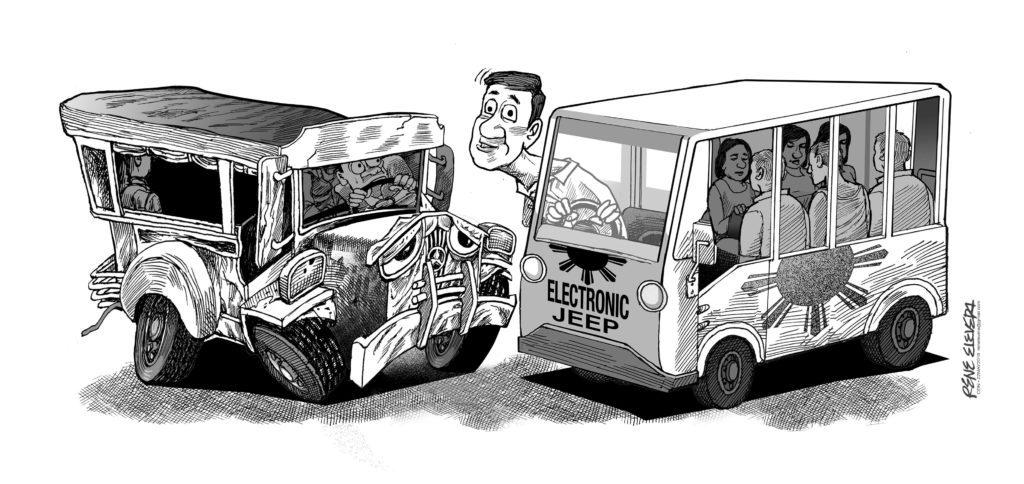
The confirmation that several upgraded passenger electronic jeepneys or e-jeepneys are scheduled to operate in the streets of Metro Cebu should hopefully provide enough incentive for other transport groups to follow suit and acquire their own units.
The Cebu Integrated Transport Cooperative (Citrasco) bought several of these units that will service routes in Cebu City’s business district, notably IT park which draws a significant number of employees, visitors and businesses.
The Land Transportation Franchising and Regulatory Board (LTFRB) regional office in cooperation with the Cebu City Traffic Operations Management (Citom) already designated routes for these e-jeepneys which would hopefully not just service a lot of commuters but also help ease traffic congestion.
If we are to base our optimism on these twin goals, it is the objective of the Department of Transportation (DOTr) not only to upgrade the jeepneys but also the pay scale of the drivers, who use their low pay and excessive boundary as excuses to load and unload passengers at non-designated areas and at ungodly periods of time.
There’s no guarantee that these targets will be achieved but more public utility vehicles (PUVs) servicing more passengers means less people stranded on the streets and despite the traffic congestion, the wait may be a bit more bearable than having to sit in cramped, congested spaces inside dilapidated and smoke-belching jeepneys.
Aside from reasoning that the units are too expensive for any lone operator to acquire, the latest excuse employed by militant transport groups is that acquiring upgraded jeepneys will lead to the so-called “corporativization” of the transport sector.
This means that transport operators may become Big Business themselves, hiring and firing drivers and imposing high fare rates as they please without regard to public welfare, unlike those militant transport groups that stage rallies and engage in transport strikes to demand a fare increase or to stop at all costs government’s mass transport modernizaton program.
It also doesn’t help that the government’s TRAIN program continues to impose heftier taxes on fuel prices. But these operators run the risk of being rejected by the riding public, most of whom can and are willing to pay a little extra in order to ride in comfort and convenience.
That said, the government should do its part to institute an effective mass transport system that will employ existing transport options and resolve the traffic congestion problem that had set back the country’s economy and inconvenienced the public for years now.